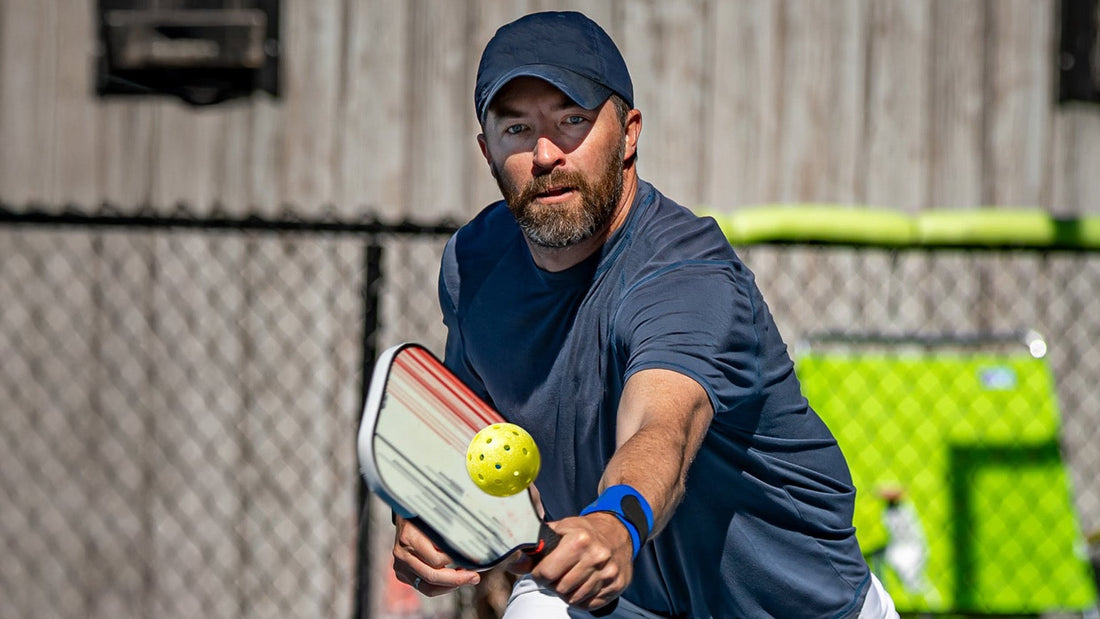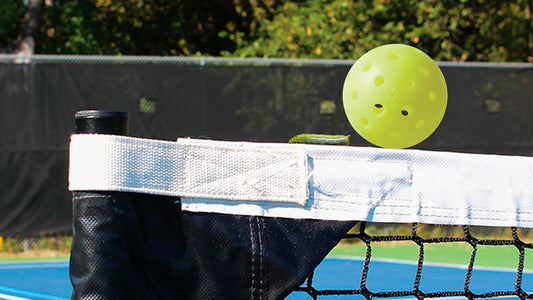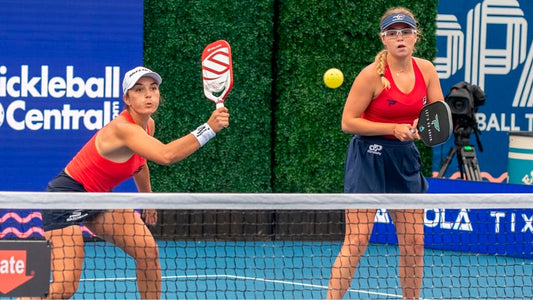
The Mental Game of Pickleball: How Your Psyche Shapes Your Play
Share
“Whether you think you can, or you think you can’t—you’re right.” — Henry Ford
When you step onto a pickleball court, one of the first questions you might hear from your partner is: “How are you playing today?” It’s not just small talk. It’s a glimpse into the psychology of the sport. Pickleball isn’t only about dinks, drops, and drives. It’s also about the mental game, and how you carry yourself emotionally and psychologically can be the difference between a win and a loss.
Why the Mental Game Matters
Pickleball is fast, social, and often unpredictable. With quick exchanges at the kitchen, long rallies, and momentum shifts, your mental state can fuel your performance—or sabotage it. A confident mindset can turn close matches into victories, while frustration or doubt can cause unforced errors to pile up.
The sport also emphasizes doubles play, which means your mental approach affects not just you, but also your partner. Staying calm, encouraging, and focused keeps both of you in the game.
Common Psychological Challenges in Pickleball
- Performance Anxiety: The fear of making mistakes in front of your partner or opponents.
- Momentum Swings: Losing focus after giving up a run of points.
- Frustration with Errors: Dwelling on misses instead of resetting for the next rally.
- Comparison Trap: Measuring your ability against others instead of focusing on your improvement.
- Partner Pressure: Worrying about “letting your partner down” instead of playing free.
Strategies for Strengthening Your Mental Game
1. Reset After Every Point
Good or bad, every rally ends. The best players mentally “wipe the slate clean” after each point, keeping themselves present. A deep breath, a paddle tap, or a simple mantra (“Next point”) can help you reset.
2. Use Positive Self-Talk
Instead of saying, “Don’t hit it in the net,” flip the script to, “Lift the ball over the net.” Your brain responds better to constructive commands than negative reminders.
3. Support Your Partner
A quick “nice try” or “we’ve got this” can make all the difference. Remember: your partner feeds off your energy, and encouragement builds confidence for both of you.
4. Focus on What You Can Control
You can’t control your opponent’s shots, the weather, or even bad bounces. But you can control your effort, your positioning, and your attitude.
5. Visualization and Preparation
Before matches, imagine yourself executing shots with confidence—third shot drops, inside-out dinks, or solid serves. Visual rehearsal helps prepare your mind for actual scenarios.
The Answer to “How Are You Playing Today?”
When your partner asks, “How are you playing today?” they’re really asking about your mindset. Even if you’re not hitting your best shots, a response like “I’m focused, let’s play smart” reassures them and boosts team morale.
Your answer sets the tone for the game: play with belief, resilience, and positivity, and your performance will follow.
Game Point
Pickleball is as much a mental challenge as it is a physical one. Mastering the psychological side—staying calm under pressure, resetting quickly, and projecting confidence—will make you a more consistent and formidable player. Next time you’re asked, “How are you playing today?” remember: your mindset may matter just as much as your paddle.
See you on the courts!



